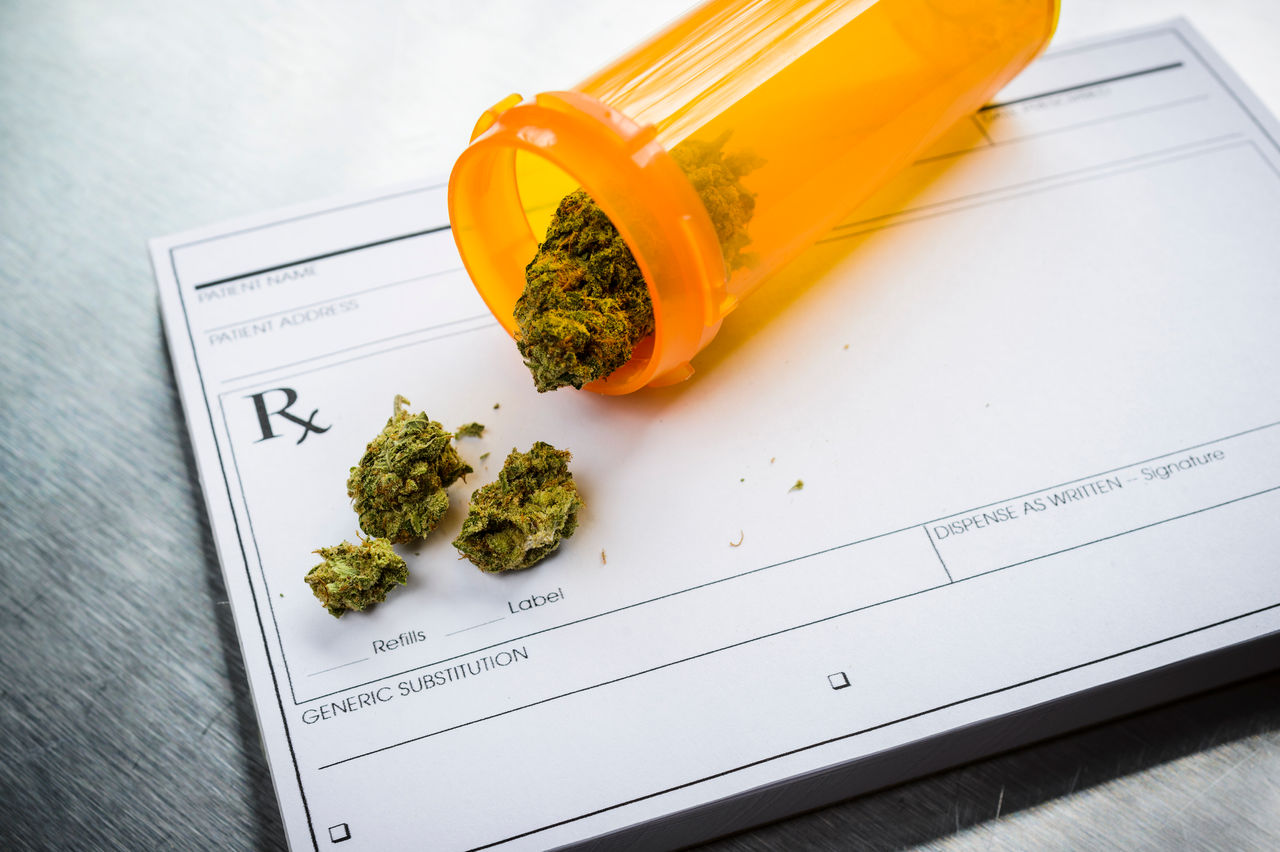Top Medical Marijuana Doctor Clinton MS for Specialist Assessment
Top Medical Marijuana Doctor Clinton MS for Specialist Assessment
Blog Article
Shedding Light on What Medical Marijuana Can Heal: an Extensive Analysis of Its Therapeutic Characteristics
In recent years, there has actually been a growing interest in the healing capacity of clinical marijuana. While anecdotal evidence abounds, a thorough evaluation of the clinical information regarding the efficiency of clinical marijuana in treating these conditions is called for.
Persistent Discomfort Administration
Chronic pain administration continues to be an important facet of healthcare, demanding a thorough strategy for reliable therapy. In the last few years, medical marijuana has actually emerged as a potential healing alternative for individuals struggling with persistent discomfort conditions. The endocannabinoid system, which plays an important function in pain inflection, has been targeted by cannabis-based treatments to improve and ease signs lifestyle for people.

Moreover, medical cannabis supplies a promising alternative for individuals that experience excruciating side results from conventional pain medications. Its capability to attend to discomfort through a different device makes it a useful enhancement to the arsenal of therapies readily available for chronic discomfort monitoring.
Epilepsy Treatment Possible
Clinical cannabis has revealed promising capacity in the therapy of epilepsy, providing an unique restorative technique for managing seizures in clients. Epilepsy is a neurological problem defined by frequent seizures, impacting people of any ages. Standard treatments for epilepsy include antiepileptic medications, but these medicines might not be reliable for all patients and can have significant adverse effects.
Research study on the usage of clinical marijuana for epilepsy has actually disclosed encouraging outcomes. Cannabidiol (CBD), a non-psychoactive compound found in cannabis, has been particularly highlighted for its anticonvulsant residential or commercial properties. Research studies have shown that CBD can decrease the frequency and seriousness of seizures in individuals with treatment-resistant types of epilepsy, such as Dravet disorder and Lennox-Gastaut syndrome.
Moreover, the FDA has authorized a CBD-based medicine, Epidiolex, for the treatment of seizures related to these serious types of epilepsy. This turning point highlights the expanding acknowledgment of medical cannabis as a useful restorative option for managing epilepsy and provides wish for individuals who have not reacted well to conventional therapies.
Nausea Alleviation Advantages
The alleviation of nausea via using marijuana has been increasingly recognized for its healing advantages in different medical problems. Nausea or vomiting and throwing up are typical signs and symptoms experienced by people undertaking radiation treatment, those with stomach problems, and individuals with persistent discomfort problems. Medical marijuana, with its energetic compounds such as THC and CBD, has actually shown promise in giving alleviation from nausea.

Furthermore, clinical cannabis offers an all-natural option for individuals that do not react well to standard anti-nausea drugs or who experience severe adverse effects from these medications. People going through chemotherapy, particularly, have reported substantial enhancements in their quality of life when making use of cannabis to take care of nausea. As study in this field proceeds to grow, clinical cannabis is significantly being thought about as an important alternative for nausea alleviation in various clinical settings.
Stress And Anxiety Decrease Impacts
Researches have demonstrated the possibility of cannabis in minimizing anxiety signs via its interaction with the endocannabinoid system. The endocannabinoid system plays an essential duty in regulating emotions, consisting of anxiousness, by maintaining std clinic near me homeostasis in the body. Cannabinoids in cannabis, such as THC and CBD, engage with the endocannabinoid receptors in the mind, specifically the CB1 and CB2 receptors, to modulate anxiety-related actions.

Individuals with problems like generalised anxiety disorder (GAD), social stress and anxiety condition, and trauma (PTSD) may gain from the anxiolytic residential or commercial properties of cannabis (Medical Cannabis Clinic). Nonetheless, further research is read here needed to identify optimal dosages, shipment techniques, and long-lasting impacts on anxiousness management.
Prospective for Inflammation Control
With its known anti-inflammatory homes, cannabis has revealed pledge in potentially controlling inflammation within the body. Swelling is the body's all-natural action to injury or infection, however when it becomes persistent, it can add to different diseases such as joint inflammation, inflammatory digestive tract disease, and even cardiovascular disease. Study suggests that the cannabinoids found in marijuana, such as THC and CBD, can help manage the immune feedback and lower inflammation.
Researches have revealed that marijuana can connect with the endocannabinoid system, which plays an important function in controling inflammation. By targeting the cannabinoid receptors, cannabis compounds can modulate the immune reaction, causing a decline in inflammation degrees. This makes cannabis a possible candidate for taking care of inflammatory conditions where traditional therapies have failed.
Moreover, cannabis-derived items like CBD oil have acquired appeal for their anti-inflammatory residential properties, with several people using them as a natural solution for conditions connected with inflammation. While more study is needed to Full Report totally comprehend the mechanisms behind marijuana's anti-inflammatory impacts, existing findings reveal appealing outcomes for the prospective use clinical marijuana in controlling inflammation.
Verdict
Finally, medical marijuana has shown appealing healing residential or commercial properties in taking care of chronic pain, dealing with epilepsy, soothing queasiness, minimizing stress and anxiety, and controlling swelling. Its possible advantages in various medical conditions highlight the value of more study and expedition into its medicinal usage. The proof suggests that medical cannabis could be a useful choice therapy alternative for individuals looking for remedy for a variety of signs and symptoms and conditions.
In recent years, clinical cannabis has actually arised as a potential restorative choice for people experiencing from chronic discomfort problems.Clinical cannabis has shown promising potential in the treatment of epilepsy, providing an unique healing strategy for taking care of seizures in clients. As study in this location proceeds to grow, medical cannabis is increasingly being considered as a valuable choice for queasiness alleviation in various clinical settings.
In conclusion, clinical cannabis has revealed encouraging restorative properties in taking care of persistent discomfort, treating epilepsy, easing nausea, lowering anxiousness, and managing swelling. The evidence suggests that clinical cannabis might be an important alternative therapy option for people seeking alleviation from a variety of conditions and symptoms.
Report this page